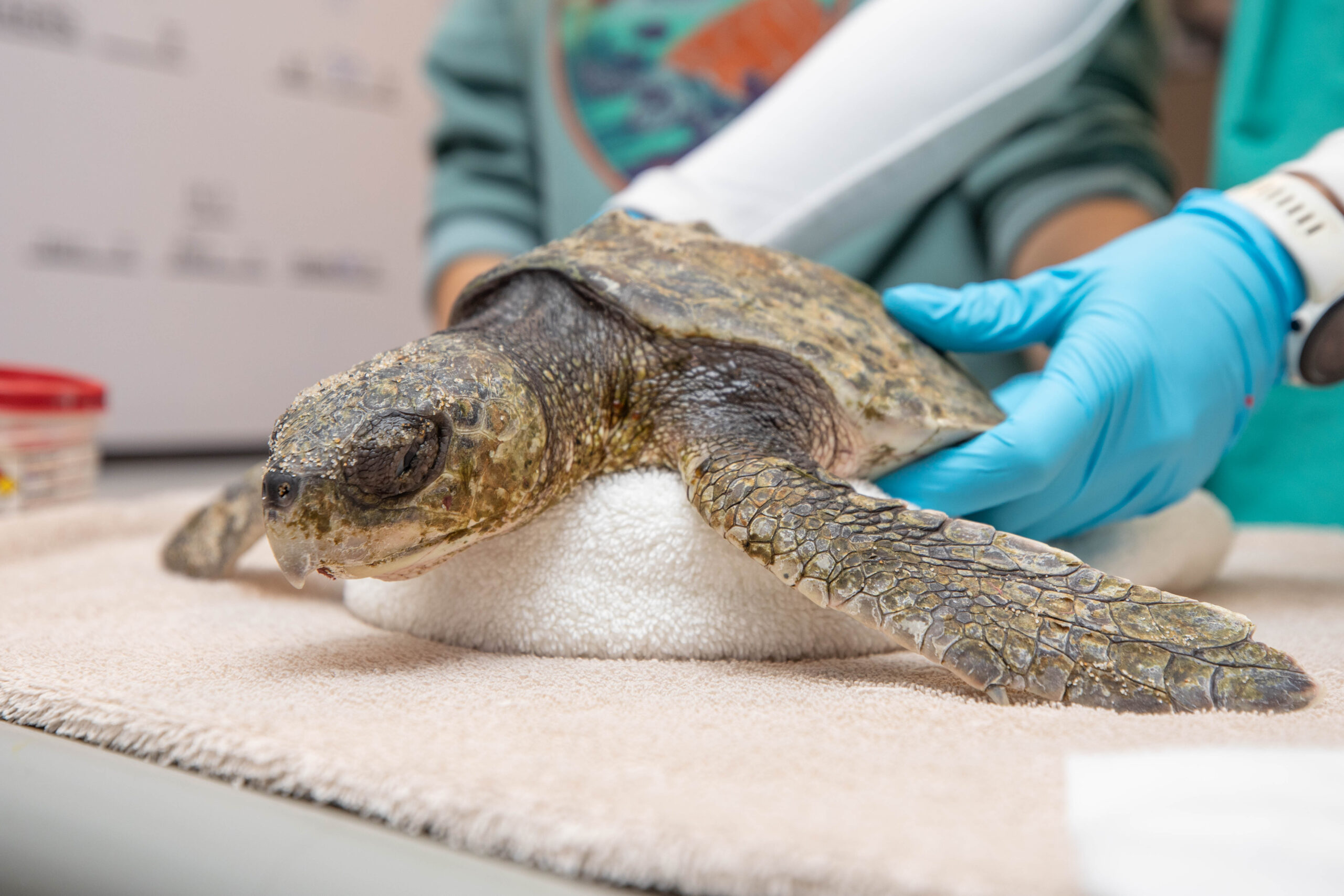
CREDIT: Vanessa Kahn/New England Aquarium
QUINCY, MASS. (Dec. 2, 2024) – The New England Aquarium is treating more than 200 cold-stunned sea turtles that have washed onto Massachusetts shores in critical condition, an annual phenomenon that has ramped up in the past week.
**PHOTOS AND VIDEO AVAILABLE HERE, WITH CREDIT TO NEW ENGLAND AQUARIUM**
Staff and volunteers from Massachusetts Audubon Wellfleet Bay Wildlife Sanctuary have been walking the beaches along Cape Cod Bay in search of cold-stunned turtles and transporting the animals to the Aquarium’s Sea Turtle Hospital in Quincy, MA, where they are treated for life-threatening medical conditions resulting from hypothermia and the inability to feed.
So far this season, Aquarium staffers have treated 257 live sea turtles: 214 critically endangered Kemp’s ridley turtles, 39 green turtles, and four loggerheads. About 100 of those turtles have been rescued in just the last two days.
“With winds increasing and temperatures dropping, we have started to see more sea turtles enter the hospital in the last week. The New England Aquarium has developed ways to streamline intakes of these large numbers of patients, allowing us to give the best possible care to all of the turtles that enter our hospital,” said Adam Kennedy, the Aquarium’s Director of Rescue and Rehabilitation.
The sea turtles are often critically ill and require a variety of medical treatments to ensure they have the best chance for survival—sometimes needing care for weeks or months before they can be released back into the ocean. When a sea turtle arrives at the Aquarium’s Sea Turtle Hospital, staff evaluate the rescued turtle by performing a thorough physical exam, bloodwork, and X-rays.
“The majority of the turtles arrive with serious ailments such as pneumonia, dehydration, traumatic injuries, or sepsis,” said Dr. Melissa Joblon, Director of Animal Health at the Aquarium. “During the busy admit period, most turtles receive a standard fluid plan and antibiotics; however, we aim to tailor our treatment plans to each individual as soon as caseload allows.”
Each fall and early winter, hundreds of cold-stunned sea turtles wash up on the beaches of Cape Cod. Because of the rapidly changing water temperature and wind pattern, many turtles cannot escape the hook-like area of Cape Cod Bay and become hypothermic. As the Aquarium’s Sea Turtle Hospital reaches full capacity, the team works closely with the National Oceanic and Atmospheric Administration’s (NOAA) Fisheries Service, the non-profit organization Turtles Fly Too, and other partner organizations to help transport and rehabilitate the animals. Last week, 30 turtles were flown to North Carolina to free up space for new arrivals at the New England Aquarium’s facility.
The vast majority of the sea turtles that strand each year are Kemp’s ridleys, a critically endangered species that faces threats including fisheries interactions, climate change, ocean pollution, and degradation of their habitats. Amid ongoing rescue, rehabilitation, and research efforts, donations are crucial to continuing the conservation work to help protect this species. On Dec. 3, the Aquarium is launching a Giving Tuesday campaign to help support sea turtle rescue and rehabilitation, with donations matched dollar-for-dollar up to $100,000. Supporters can visit this website to contribute.
MEDIA CONTACT
Pam Bechtold Snyder—617-686-5068; psnyder@neaq.org
